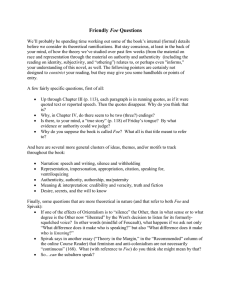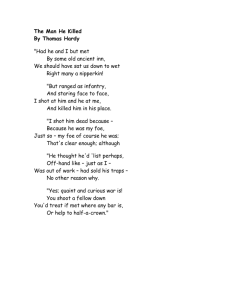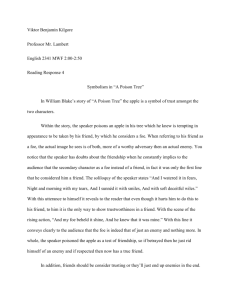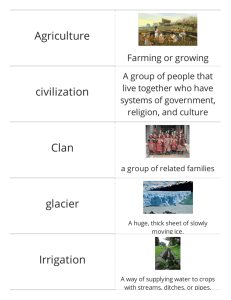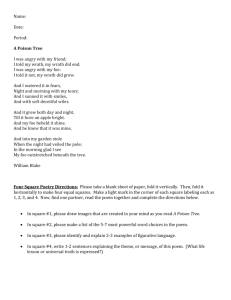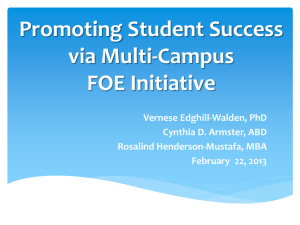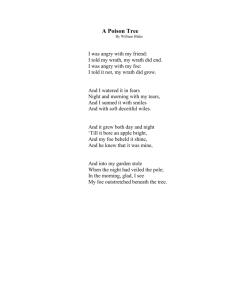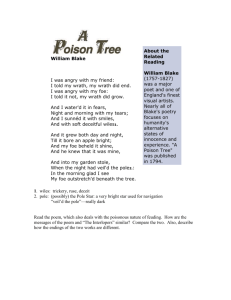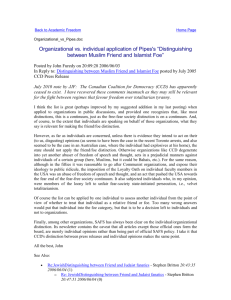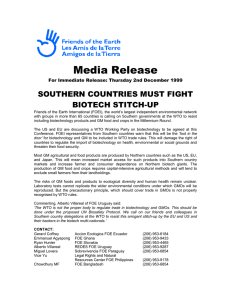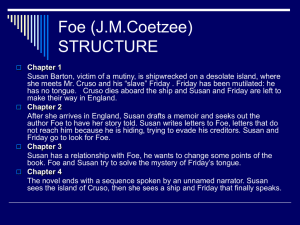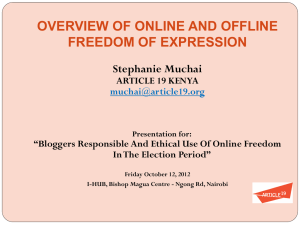FoE presentation March2012v2
advertisement
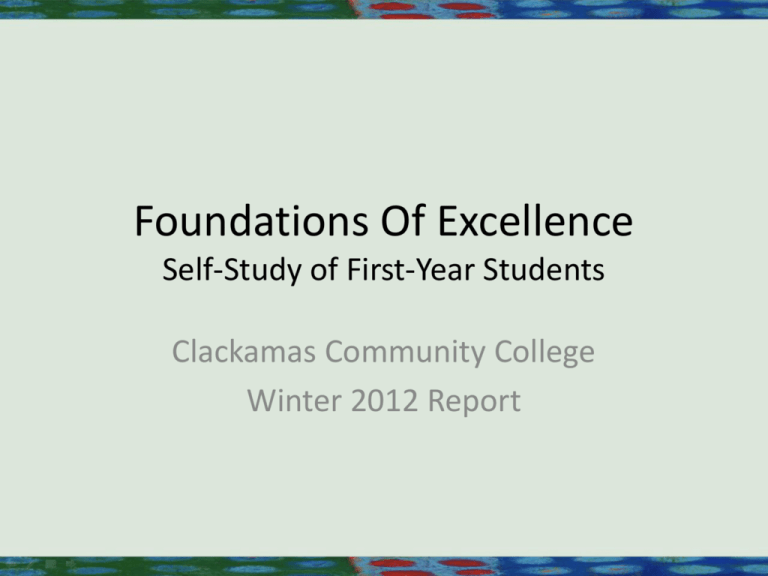
Foundations Of Excellence Self-Study of First-Year Students Clackamas Community College Winter 2012 Report Reminders….What is it? A yearlong self-study -• Reviews all aspects of the new student experience. • Resulting in a plan for institutional improvement. • Leading to higher levels of student learning and persistence. • Process designed by the Gardner Institute for Excellence in Undergraduate Education • Supported by OCCWD. Reminders…What are the dimensions? Dimensions • • • • • • Philosophy Organization Learning Campus Culture Transitions All Students • Diversity • Roles and Purposes • Improvement Reminders…Who is involved? • FoE Steering Committee – 79 persons from all associations across campus. • FoE Task Force – Rochelle Dawn, Brenda Marks, David Arter, Pam Clem, Sean Briare, Melissa Pirie, Tara Sprehe, Mathew Altman, Andrea Csavajda, Michelle Baker, & Phillip King • FoE Liaisons to Gardner Institute – Brenda Marks, Phillip King, and Elizabeth Lundy • Dimension Committees – 9 different committees. • FoE Consultant – Catherine Anderson, Current VP of Enrollment at Gallaudett University and consultant to Gardner Institute for the last 5 years. Reminders ….What are our data sources? • FoE surveys (one for students, one for faculty/staff). • Committee member’s knowledge. • College documents (such as ISP manual, website, CCSSE) and campus reports. • All gathered information will create an evidence library. Reminders…Why did the college undertake this now? The self-study: • Closely aligns, and carries out many of the SEM initiatives and the Clarus Corporation recommendations. • Meets several of the requirements of the accreditation process. • Is strongly supported by the state through both additional funding and logistical support. • Provides a ready-made, research-based framework to study our new student experience. Results from other institutions have shown a substantial increase in both student success and persistence. What are the expected outcomes? • Each Dimension Committee prepares a report with recommendations (due by end of Winter 2012). – Link to copy of a report (https://foetec.fyfoundations.org/foetec/DReport.aspx?dimid=144&plan id=434). • Committees will get feedback from the FoE consultant. • Committee reports will be synthesized into one CCC report (target date – May 7). • Final report will get feedback from FoE consultant. • Recommendations will be brought forward to appropriate areas of the college. What are the current, in-progress findings? CCC may benefit from -• Creating a strategic plan for first-year students including. – Mandatory advising – A suite of orientation, student success courses, cohorted learning communities • Systematically sharing data (such as CCSSE) with the campus community. • Implementing mandatory placement testing. • Enforcing course pre-requisite requirements. What are the current, in-progress findings? Our current, in-progress findings mirror many of the national findings reported in the “Promising Practices for Community College Success” by CCCSE, including – Academic planning at Century College (MN), York Technical College (SC), and Chipola College (FL) – Student success courses at Brazosport College (TX), College of the Sequoias (CA), and Durham Technical College (NC) What is next? CCC’s FoE Exhibit Hall in the Fireside Lounge April 16-27
